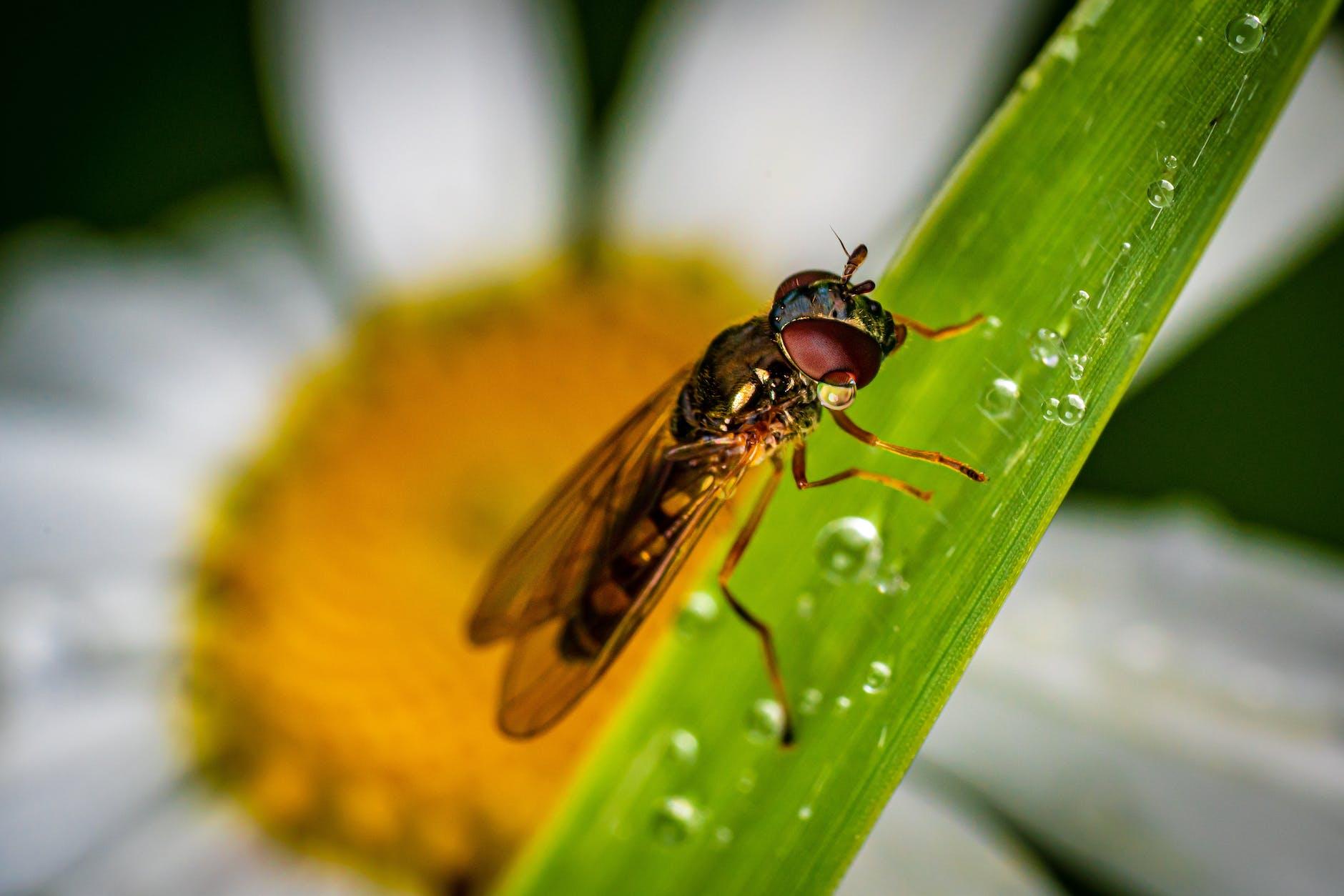Handlebars
By Pablo Castro
The gnat, almost imperceptibly quiet except for its occasional cry, is AWOL. The gnat, a pet-microscopic-dragon-friend, explored and flew around and suited the room. In this particular morning’s breaking light, the gnat eludes him. He showers in the bathroom attached to his room, in the breaking light, with cold water. He dries off and puts on a blue velour tracksuit and grabs a Soylent from the mini fridge. Growing up, he did morning staring contests with papayas and apricots and strawberries. He’d inspect the day’s fruit on the kitchen table in horror, and if he stared long enough Mom or Dad would blend the fruit, and he’d gulp it down—his real gripe with fruit, consistency—unless he lost and he’d go without anything but a chicken patty, excellent though meager, until he got back after school to the mushy fruit problem glistening (beet soup: a noxious, Barney-hued exception to the consistency-thing, a vegetable, he remembers once the soup-induced-sibling-solidarity against Great Evil, looking to Lan and Lei for moral support in the yellow-cone-light-fixture’s glow and the purple soup in the blue and white ceramic bowl on a plate on a placemat, how in that light that soup became an infinite hole, and there—2002, eight years old—he met death, prayed, cried, screamed). He stretches and looks around for the gnat and drinks the Soylent. Dad calls him a hikikomori. He prefers to think of himself as a man of comics.
Christmas Eve, 1968, it’s just below freezing, overcast. Growing up she ate fish this day. Mom would buy a live carp from God knows where, and they’d fill the tub with cold water and plop it in. No bathtub here, no carp. She’s on the toilet, looking at a freckle-tattoo on her pinky toe, a mid-afternoon dare from Ray Carver from Yakima, at Chico State. How should stories be? he’d ask. How should sentences be? Bare, she’d say. Or, muscular. And he’d squeal, red-eyed, fully-torqued (the funky sentences in her diaries, heated and hammered, live unread in a cardboard box—attic literature). A knock.
“How’s my lady?” Ken asks from the other side.
“I feel like dancing,” she says.
“When?”
“Right after,” she says.
They swing; the three dogs watch.
He thinks the gnat is, without question, dead. There’s no gnat-food. He liked the gnat. At around 11 a.m., he works his molars using the gentle concentric strokes the hygienist proselytizes. He looks at his reflection in the folded-out mirror—the storage in the space accessed by the folded-out-mirror is filled with combs and creams and antibiotic bottles—and ignores reality. He used to be a bank teller. Years ago, sucking on a Jolly Rancher lollipop, one of the ones for customers, completing a savings withdrawal for an expecting couple in an arrangement not unlike a confessional—customers saw these transactions as opportunities to confess things like undisclosed pregnancies, infidelities, bankruptcies, etc.—as he prepared to complete the withdrawal, his hands and gooch started tingling, worse if he touched anything with his hands. He froze. A vehicular logjam formed behind the pregnant woman and her husband and their Toyota. An hour later he was supine, sweating on an emergency room table watching two spectral moons on the rolling ultrasound machine’s screen thinking about his parents doing it to “Diana” by Paul Anka—Dad kissing Mom’s feet, I can feel you giving all your charms—a trauma he’d been unable to suppress, his only hope, and he got tubes and tubes of bloodwork, a cystoscopy and a colonoscopy, an MRI (he worried the whole time about magnetic currents turning his brains to Jell-O), and one day the perineal paresthesia faded, only it unfaded. He quit the teller job. Last year his hairline absconded in the dead of night. Mom wept. Treatments included magnesium, doxycycline, neon yellow atovaquone, azithromycin, omega-6, omega-3, probiotics, Cistus Incanus tea, curcumin, nortriptyline, finasteride… No doctor could make it—the tingling, malaise, fatigue, joint-pain, absconded hairline—stop. And then the gooch- demons surrendered. He goes molars to premolars to canines to incisors and rinses the brush and calls Lei. She’s thirty-eight, a Physician’s Assistant.
“I’m at work,” she says.
“Does it rain much? On Long Island?”
“You’re so…”
“Alive?” he asks.
“You do all the things a dead person does.”
“What do you suggest?” So, Calvin and Hobbes.
Around 11:30 a.m. the President’s lawyer gives a presser in Four Seasons Total Landscaping’s back parking lot under a blue, cloudless sky in Northeast Philadelphia, from behind a lone podium arranged in front of one woman, some masked men, and unmasked men, in front of a teal building’s garage, near a crematorium, Fantasy Island and a jail. Absolute fraud, the bald guy says.
In those months he’d developed a tendency to drink after these inflections in the epistemological nightmare. He turns off the TV and cracks an opaque bottle of shōchū, a gift from Baba. It’s almost noon. He drinks and overdoses on e-cigarette and feels the planet’s momentum. The flat ceiling, no way it’s always been so un-curving. Afraid, he rips up a recent cartoon, fundamentally solipsistic, of a young hermit cartoonist who likes to skateboard. Surely episteme is greater than style. Or is style episteme? M-a-t-t-e-r? He feels like singing. Only 5% of the population is tone deaf, most people are untrained and not truly lacking in the capacity to tell differences in pitch, but untrained or anomaly, his is a guttural scream, a Japanese Bob Dylan croaking not pre ’65 nor as Robert Zimmerman or Robert Milkwood Thomas or Elston Gunn or Tedham Porterhouse or Blind Boy Grunt or Boo Wilbury or Sergei Petrov, no, Bobby on the Never Ending Tour croaking on a stool, Bobby pushing Chryslers in a Super Bowl ad. He opens his mouth, nothing comes. The room is still. More shōchū. He vows to stop reading, fiction’s relationship to life is causal. Here, a dusty miniature violin, a relict of the Suzuki Method, from a cardboard box underneath his bed. There was an ancient German violin teacher named Amelie, a former lover of Richard Strauss’s only son Franz “Bubi” Strauss, who—Amelie without kin, slowly dying—believed in him. Their last lesson she came over nearly too weak to lift her bow and sat here, same room and gave him what she called Strauss’s “Op. 35 1/2,” a handwritten, untitled tone poem composed in 1900. He never learned to read sheet music, so he used to wonder endlessly about the Op., and he’d get tangled up there in the impenetrable grey noise, spat out always a real mess, discombobulated. He never imagined it might be worth anything at all. Now he thinks he’ll sell the Op. to World Famous Gold & Silver if and only if he ever finds himself in Vegas. The gnat buzzes ultrasonically. Wobbly hands draw themselves.
*
“Teaching music is not my main purpose. I want to make good citizens. If a child hears fine music from the day of his birth, and learns to play it himself, he develops sensitivity, discipline, and endurance. He gets a beautiful heart.” — Shinichi Suzuki
The boy with the electric guitar supposed to play like God is on drugs and laughs freaky in his green Hawaiian and repeats scales over and over again until they fall apart. Then he sounds OK. It’s the year of “Monster Mash,” “The Mashed Potato,” “Martian Hop,” and “The Loco- Motion” and people flail in the kitchen and the living room: Sheila, a philosophy major from Utah; goatee-Joe; Tanya, a Buddhist; Stu, a smiler; Ricardo— “Riccy,” “Ric-sauce,” “Cardo.” Cardo’s a sick puppy. Stu moves every direction at once.
“Want to dance?” she asks.
“Dance floors terrify me,” Sara says. “Punch?”
“Thanks,” she says, taking the cup.
Sara puts back the wooden ladle and spills orange punch.
“You spilled.”
“I’ll dance,” Sara says. Then a tower of plates falls and appears to resist gravity.
“One happy scnd I’m a real artist, don’t give a damn what anyone thinks. The rest I feel as if plugged wet into a socket.” — she, 1961.
*
She wakes up around midnight, summer of ’69. Ken snores like a metronome. Down the hallway her baby screams. Someone told her a baby’s poop doesn’t smell, at the shower or the pharmacy maybe, on account of a baby’s diet consisting of nothing but hard-earned milk. Her little one’s poop smells like poop. In the dark nursery she finds the chain under the marbled lamp and changes Kim’s war-torn Pampers and sings, pours like molten steel. Kim sputters. She puts her down in the brand-new crib—maple, glossy white—and sits in the Bambi-themed nursery in the rocking chair Ken’s Aunt Leanne gave them for getting married as if the occasion warranted a chair, and sitting there watching Kim’s feet shift, wondering about baby dreams, what worlds, she finds herself limber in the sticky dark on a bicycle’s handlebars.
It’s a hot, dry summer.
He’s spent the last hour doing nothing at his rolltop, flicking a crumpled bit of paper. He considers if he ought to invest in unruled paper. A while passes. He orders the paper on Amazon. There’s an oyster shell on the desk. He picks up the shell and becomes a boy, at a shack by a harbor with his grandfather Tanaka, a man averse to the cutting of fingernails at night. They admire the floatables: sailboats, recreational and commercial motorboats, kayaks, paddleboards, a shiny jet ski. His grandfather takes a paper napkin and rips it, so the napkin is really three pieces of napkin held together by silvery wisps, and Tanaka instructs him to take the outer two shreds, leaving the middle third flopping, and he says the man who spoke no English, yank the outermost shreds at exactly the same time, disconnect this napkin in one fell swoop—the boy hangs edgeofhisseat, asthmatic lungs sucking at briny air, legs bent east—and, clutching every boat in the harbor in his fist, Tanaka says, if you can turn here napkin to three I’ll give you whichever one you want. Vessels appear in his room and sway. Now the boy is fixated on the napkin, transfixed, seized by his boat-owning happiness and future on the line, and both hands same nanosecond, he yanks. The napkin rips in two. 2/3rds and 1/3rd. Again and again he rips napkins. Boats disappear. A mound of paper shreds grows and grows on the table until the manager comes along and says no more. It’s always 2/3rds and 1/3rd. Never 1/3rd, 1/3rd, 1/3rd. Shitsurei shimashita his grandfather chants and looks as if he might cry, and the manager, he’s calmed down a bit, he says don’t worry. You must understand one restaurant only has so many napkins.
Another Tanaka-ism: honne versus tatemae.
The gnat flits by and yanks him with it away from the sweaty harbor. He traces the shell on his notebook’s wide-rules and reads a comic by Gokul Gopalakrishnan online in The Indian Express. Maybe he’ll be a flâneur. He observes his room, the air sitting, himself sitting in the sitting air. Motes of bedding fiber flying. He flânes. All tedium. White wall white wall white wall white wall. A Panel of the Cartoonist as a Young Man, by me Paloma.
— 2038.
*
She cuts holes in a bedsheet, slides into the thing, and puts on earrings and maroon lipstick by the circular mirror. It’s not Halloween. Sara’s ready, waiting, calling her name from the living room.
“Coming angel,” she says, puckering her lips.
They go out into the airless night. Sara glides on delicate wings made of wire and cloth. Wine, Sara says, too expensive. It’s grape juice. Ray had a red single-speed bicycle. Sara first.
*
Middle school: Mom and Dad sat me down in the old house. We’re getting the backyard- house, they said. A yellow ranch. I asked to go to Dairy Queen and made my intentions—all business—clear. On the way, they tried to make me laugh. I sobbed while Dad sang along to “(Sittin’ On) the Dock of the Bay” by Otis Redding.
We drank the milkshakes in the car in the DQ lot and listened to the radio. Mom talked; Dad talked. I remember the milkshake, watching a video on my iPad.
A few weeks later, I found myself in a strange room with big windows. We’ll have to pick out some nice blinds, Mom said. Someone made the bed. I didn’t sleep the first night. In the morning the closet door was open, and crying there in the mornin’ sun, a chest. A gift from the last inhabitant of this strange room. I hid it. Now it’s under my bed wrapped in a Cruz Azul blanket. One time I built a papier-mâché piñata with some old sheet music.
A blizzard makes landfall tonight. Even pressed against the headboard, a bookshelf filled with books and comics and the soccer trophies rescued by Mom, his legs dangle off the twin (there was a treehouse wedged in the sky between an oak’s crook and a bough, anchored to Earth by a metal fire-pole and a ladder—inside was small and dark, a genuine treehouse the floor could give any second—and he swept away cobwebs and used a bucket to hoist up rocks and Boys’ Life magazines and gold trophies and was always on the lamb there; an August storm, the tree snapped; the hideaway crumpled and the fire-pole got flung up and landed in the dirt at a slant like a pocket-knife awl, cosmic mumbletypeg, and Mom collected the participation trophies from the grass and washed them in the dishwasher; they’re silver now). He adjusts a trophy and plugs in his phone and tries to sleep.
After midnight, he wakes under the goose down comforter to the rain’s heavy drum. The microwave’s red clock smolders. His eyes adjust to this light. No willing brings him back asleep. Wind howls in the naked windows (one-time he ordered blinds online, installed them, and Dad the ultracrepidarian foamed in with a screwdriver). He stands and the floor creaks and he rolls the office chair to the closet—inside are clothes on shelves and hangers—and he opens the door, pushes the chair closer and gets on with his arms outstretched like a bird. Wind howls. He slides a latched chest back on the unpainted top shelf, expecting its load. But it’s weightless. He bends and puts the chest between his feet. Sweat, between his toes. On the carpet he opens the chest and out pour letters and receipts and ticket stubs, fading bits of him. The photograph of a woman and a red bicycle. Outside, a gnat breaks egg.
Pablo Castro lives in New York City. He is a graduate of Colby College and an MFA candidate in fiction at Columbia University.
Photo by skigh_tv on Pexels.com
Are you a cultural omnivore?
…we are betting you are. More people are learning about our press and journal than ever. Our content is free to read. Our journal is a labor of love that takes money and hard work to keep going. If you enjoy reading our journal consider making a small donation.
Thank you.



